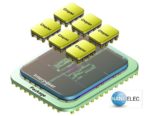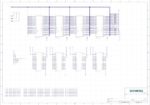Sensors are inherently analog in nature, and they get digitized for processing by using an Analog to Digital Converter (ADC) block. At the recent IP SoC event I had the chance to see the presentation by Ken Potts, COO of Alphacore on their semiconductor IP for ADCs. I learned that Alphacore started out in 2012, now offering both standard… Read More
Author: Daniel Payne
Analog to Digital Converter Circuits for Communications, AI and Automotive
An Update on HLS and HLV
I first heard about High Level Synthesis (HLS) while working in EDA at Viewlogic back in the 1990s, and have kept watch on the trends over the past decades. Earlier this year Siemens EDA hosted a two day event, having speakers from well-known companies share their experiences about using HLS and High Level Verification (HLV) in their… Read More
Functional Safety for Automotive IP
Automotive engineers are familiar with the ISO 26262 standard, as it defines a process for developing functional safety in electronic systems, where human safety is preserved as all of the electronic components are operating correctly and reliably. Automotive electronics have now grown to cover dozens of applications, and… Read More
TSMC OIP – Analog Cell Migration
The world of analog cell design and migration is quite different from digital, because the inputs and outputs to an analog cell often have a continuously variable voltage level over time, instead of just switching between 1 and 0. Kenny Hsieh of TSMC presented on the topic of analog cell migration at the recent North American OIP … Read More
TSMC OIP – Enabling System Innovation
On November 10th I watched the presentation by L.C. Lu, TSMC Fellow & VP, as he talked about enabling system innovation with dozens of slides in just 26 minutes. TSMC is the number one semiconductor foundry in the world, and their Open Innovation Platform (OIP) events are popular and well attended as the process technology and… Read More
Architectural Planning of 3D IC
Before chiplets arrived, it seemed like designing an electronic system was a bit simpler, as a system on chip (SoC) methodology was well understood, and each SoC was mounted inside a package, then the packages for each component were interconnected on a printed circuit board (PCB). The emerging trend to design a 3D IC using chiplets… Read More
SoC Design Closure Just Got Smarter
Near the end of any large SoC design project, the RTL code is nearly finished, floorplanning has been done, place and route has a first-pass, static timing has started, but the timing and power goals aren’t met. So, iteration loops continue on blocks and full-chip for weeks or even months. It could take a design team 5-7 days… Read More
Why Use PADS Professional Premium for Electronic Design
My IC design career started just a few years before PADS got started in 1985 with a DOS-based tool for PCB design. A lot has changed since then, as PADS was acquired by Mentor Graphics in 2001, and continued to grow under Siemens EDA, now with four versions to choose from, where the top version is called PADS Professional Premium:
- PADS
Clock Aging Issues at Sub-10nm Nodes
Semiconductor chips are all tested prior to shipment in order to weed out early failures, however there are some more subtle reliability effects that only appear in the longer term, like clock aging. There’s even a classic chart that shows the “bathtub curve” of failure rates over time:
If reality and expectations… Read More
DFT Moves up to 2.5D and 3D IC
The annual ITC event was held the last week of September, and I kept reading all of the news highlights from the EDA vendors, as the time spent on the tester can be a major cost and the value to catching defective chips from reaching production is so critical. Chiplets, 2.5D and 3D IC design have caught the attention of the test world, … Read More




















TSMC vs Intel Foundry vs Samsung Foundry 2026